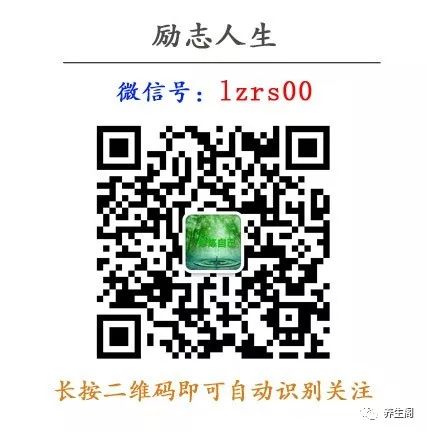The pace of life today is extremely fast, and many people are particularly busy with work and under significant stress, leading to a condition known as Qi Deficiency, which can cause considerable harm to the body. So how can we nourish our Qi? Qi deficiency may shorten lifespan! Do you suffer from one of these 5 types of Qi deficiency? TCM teaches you one method to nourish Qi!
Qi deficiency refers to a series of pathological changes and symptoms caused by insufficient Yuan Qi (元气, Original Qi). It typically manifests as physical weakness, pale complexion, shortness of breath, fatigue in the limbs, dizziness, sweating upon exertion, and a weak voice.

According to TCM theory, human life activities fundamentally involve the rise and fall of Yuan Qi. Qi deficiency is often caused by congenital insufficiency, malnutrition, aging, prolonged illness, post-surgery recovery, and excessive fatigue. Clinically, Qi deficiency can also include symptoms of Lung Qi Deficiency (肺气虚), Heart Qi Deficiency (心气虚), Spleen Qi Deficiency (脾气虚), and Kidney Qi Deficiency (肾气虚), affecting various aspects of the body. For instance, Qi deficiency can lead to weak defensive Qi, making one prone to sweating; it can cause muscle malnourishment in the limbs, resulting in fatigue; it can hinder the rise of clear Yang Qi, leading to mental fatigue, dizziness, and tinnitus. Qi deficiency can also impair blood circulation, resulting in weak or thin pulses, and disrupt fluid metabolism, potentially leading to phlegm accumulation and even edema. Additionally, Qi deficiency can reduce organ function, manifesting as a series of symptoms of organ weakness.
Below, we introduce several characteristics of organ Qi deficiency:
1. Lung Qi Deficiency
The lungs govern Qi, control respiration, and connect with the skin and hair, regulating fluid pathways. When Lung Qi is deficient, its functions of dispersing and descending Qi, regulating fluid metabolism, and resisting external pathogens weaken, leading to symptoms such as shortness of breath, spontaneous sweating, low voice, cough, asthma, chest tightness, susceptibility to colds, and even edema and urinary difficulties.

2. Kidney Qi Deficiency
The kidneys reside in the lower back, store essence, and control the opening and closing of the two Yin organs. Essence nourishes the five organs and supports the brain. When Kidney Qi is deficient, it fails to nourish, leading to symptoms such as fatigue, dizziness, forgetfulness, weakness in the lower back and knees, frequent clear urination, and pale tongue with weak pulse. If the kidneys cannot hold Qi, breathing becomes shallow and rapid.
3. Spleen Qi Deficiency
The spleen is located in the middle burner, governs transformation and transportation, and controls blood circulation. When Spleen Qi is weak, it cannot transform food and fluids effectively, leading to insufficient Qi and blood production, resulting in symptoms such as reduced appetite, discomfort after eating, fatigue, weight loss, loose stools, pale yellow complexion, pale tongue with thin coating, and weak pulse.
4. Heart Qi Deficiency
The heart governs blood vessels and houses the spirit. When Heart Qi is deficient, it cannot propel blood circulation or nourish the spirit, leading to palpitations, shortness of breath, excessive sweating, fatigue, pale tongue, and weak pulse.
5. Yang Qi Deficiency
Qi deficiency may present with a pale complexion, dizziness, low energy, fatigue, and even fainting. Yang deficiency, in addition to Qi deficiency symptoms, may also include cold limbs, spontaneous sweating, and a deep, slow, or weak pulse with a pale, swollen tongue and white coating.
Diagnosis and Treatment
1. Lung Qi Deficiency
Symptoms: shortness of breath, spontaneous sweating, low voice, cough, asthma, chest tightness, susceptibility to colds, and even edema and urinary difficulties. Treatment principle: tonify Lung Qi. Main formula: Si Jun Zi Tang (四君子汤) combined with Yu Ping Feng San (玉屏风散). Ingredients: Dang Shen (党参), Fu Ling (茯苓), Bai Zhu (白术), Gan Cao (甘草), Huang Qi (黄芪), Fang Feng (防风), etc.

2. Kidney Qi Deficiency
(1) General Kidney Qi Deficiency Symptoms: fatigue, dizziness, forgetfulness, weakness in the lower back and knees, frequent clear urination, pale tongue, and weak pulse. Treatment principle: tonify kidneys and benefit Qi. Main formula: Shen Qi Wan (肾气丸) with modifications. Ingredients: Bu Guo Zhi (补骨脂), Gou Qi Zi (枸杞子), Tu Si Zi (菟丝子), Fu Zi (附子), Gui Zhi (桂枝), Huang Jing (黄精), Fu Ling (茯苓), Shan Yao (山萸肉), Huaishan (淮山), Sang Ji Sheng (桑寄生), Dang Shen (党参), Bai Zhu (白术).
(2) Kidney Qi Instability Symptoms: in addition to general Kidney Qi deficiency symptoms, there may be frequent clear urination, residual dribbling, nocturia, enuresis; for men, premature ejaculation; for women, excessive clear vaginal discharge; or irregular menstruation or unstable pregnancy. Treatment principle: tonify kidneys and stabilize essence. Main formula: Shen Qi Wan with modifications, or use Jin Suo Gu Jing Wan (金锁固精丸), Suo Quan Wan (缩泉丸). Ingredients: Bu Guo Zhi, Gou Qi Zi, Tu Si Zi, Fu Zi, Gui Zhi, Huang Jing, Fu Ling, Shan Yao, Sang Ji Sheng, Sang Piao Xiao (桑螵蛸), Jin Ying Zi (金樱子), Yi Zhi Ren (益智仁), etc.
(3) Kidney Not Holding Qi Symptoms: on the basis of Kidney Qi instability, there may be chronic cough and asthma, shallow breathing, and shortness of breath, especially upon exertion. Treatment principle: tonify kidneys and hold Qi. Main formula: Qi Wei Du Qi Wan (七味都气丸) with Ren Shen (人参), Fu Zi, Long Mu (龙牡) added. Ingredients: Wu Wei Zi (五味子), Shu Di Huang (熟地), Dan Pi (丹皮), Zei Xia (泽泻), Fu Ling, Shan Yao, Gou Qi Zi, Tu Si Zi, Fu Zi, Ren Shen, Long Gu (龙骨), Mu Li (牡蛎), Ge Jie (蛤蚧), Dong Chong Xia Cao (冬虫夏草), Hai Long (海龙), Hai Ma (海马), etc.
3. Spleen Qi Deficiency
(1) General Spleen Qi Deficiency Symptoms: reduced appetite, discomfort after eating, fatigue, weight loss, loose stools, pale yellow complexion, pale tongue with thin coating, and weak pulse. Treatment principle: strengthen the spleen and benefit Qi. Main formula: Liu Jun Zi Tang (六君子汤). Ingredients: Dang Shen, Fu Ling, Bai Zhu, Gan Cao, Fa Ban Xia (法半夏), Chen Pi (陈皮).
(2) Middle Qi Sinking Symptoms: heavy sensation in the abdomen, increased appetite, frequent urge to defecate, or a feeling of heaviness in the anus; chronic diarrhea, or even prolapse; or uterine prolapse; or cloudy urine resembling rice wash. Accompanied by shortness of breath, fatigue, low voice, dizziness. Pale tongue with white coating, weak pulse. Treatment principle: tonify the middle and benefit Qi. Main formula: Bu Zhong Yi Qi Tang (补中益气汤). Ingredients: Huang Qi, Ren Shen, Bai Zhu, Gan Cao, Sheng Ma (升麻), Chai Hu (柴胡), Dang Gui (当归), Zhi Ke (枳壳), Fa Ban Xia, Chen Pi.
(3) Spleen Not Controlling Blood Symptoms: often seen in chronic bleeding conditions such as excessive menstruation, metrorrhagia, hematochezia, epistaxis, and subcutaneous bleeding. In addition to bleeding, symptoms of Spleen Qi deficiency must also be present. Treatment principle: tonify the spleen and control blood. Main formula: Gui Pi Tang (归脾汤). Ingredients: Huang Qi, Dang Gui, Yuan Rou (元肉), Mu Xiang (木香), Yuan Zhi (远志), Suan Zao Ren (酸枣仁), Sheng Jiang (生姜), Da Zao (大枣), Dang Shen, Bai Zhu, Gan Cao, Ejiao (阿胶), etc.
4. Heart Qi Deficiency
Symptoms: palpitations, shortness of breath, excessive sweating, fatigue, pale tongue, and weak pulse. Treatment principle: tonify Heart Qi. Main formula: Si Jun Zi Tang, Yang Xin Tang (养心汤). Ingredients: Dang Shen, Fu Ling, Bai Zhu, Gan Cao, Huang Qi, Yuan Zhi, Dang Gui, Bai Zi Ren (柏子仁), Suan Zao Ren (酸枣仁), etc.
5. Yang Qi Deficiency
Symptoms: pale complexion, dizziness, low energy, fatigue, and even fainting. Yang deficiency, in addition to Qi deficiency symptoms, may also include cold limbs, spontaneous sweating, and a deep, slow, or weak pulse with a pale, swollen tongue and white coating. Treatment principle: tonify Yang and benefit Qi. Main formula: Shen Fu Tang (参附汤). Ingredients: Ren Shen, Fu Zi, Huang Qi, etc.

How to Prevent Qi Deficiency?
For individuals with Qi deficiency, dietary considerations should also take into account the principles of the five organs’ deficiencies. Those with Qi deficiency should consume foods that have Qi tonifying properties, are neutral in nature, and sweet or sweet-warm in flavor. They should eat nutritious, easily digestible foods. Avoid foods that deplete Qi, as well as raw, cold, greasy, and spicy foods.
Qi deficiency is a common constitution in children, often associated with nasal allergies, asthma, digestive disorders, short stature, bedwetting, susceptibility to colds, obesity, and heart disease. Children with Qi deficiency should pay attention to their diet.
Both adults and children can easily experience Qi deficiency. When Qi deficiency occurs, it is essential to understand how to adjust and manage it. The above content introduces some manifestations and symptoms of Qi deficiency; when these symptoms appear, it is crucial to pay attention to adjustment.



